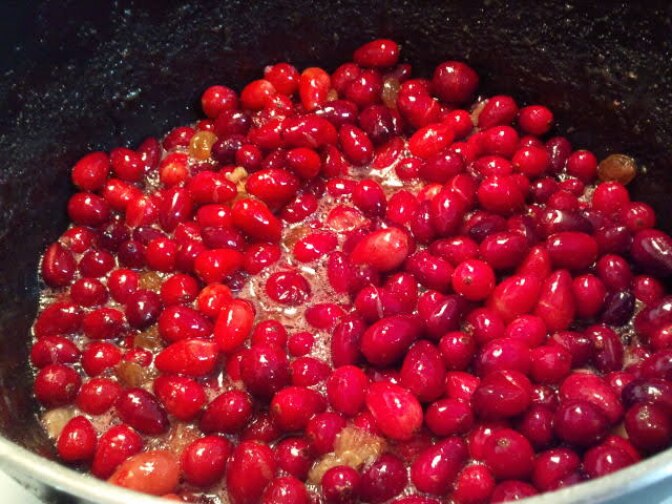If you’re an American who was born here, your first Thanksgiving memory is likely buried with other baby neurons in your brain, completely forgotten except for the photos of your parents putting a “baby’s first thanksgiving” bib around your neck.
But for immigrants like me, (I came from the U.K.) there really is such a thing as a first Thanksgiving. I can remember mine, many decades ago, standing on a cold train platform on the East Coast, watching snowflakes beginning to float down and thinking, “It snows on Thanksgiving? Really?”
That was the beginning of the day’s surprises. When I got to my host’s home, a friend of a friend I didn’t know, she handed me a dish and asked me to put it on the table. I asked her what it was. She said “succotash."
I thought, “Wait — thuffering thuccotash is a thing? I thought it was a Sylvester the Cat idiom! What a strange country.” It turned out to be a kind of bean salad — green beans, lima beans, corn — and we were off to the races.
Exotic foods
Different foods appeared, all slightly exotic for this Brit’s palette. Cranberry sauce — which remains my favorite dish — sweet but tangy. When I tried a raw cranberry some years later, I almost spat it out and couldn’t believe it was connected to the sauce in any way. I wanted to give massive respect to those New Englanders who waded into bogs to get the berries and worked out that if you boiled them down with massive amounts of sugar you had something fairly edible.
Yay, the American spirit of innovation.

And then the other dishes. Sweet potatoes? That was not something I’d had in my childhood. I tentatively tasted them, then thought, “Is everything sweet on this holiday? Wait, and they add marshmallows too? Are they insane? And how do they have such good teeth if everything has sugar in it?”
Finally, they brought out something familiar — a carefully tended-to turkey and its attendant stuffing. That’s standard Christmas Day fare in the U.K. (where it’s a national holiday celebrated by everyone, no matter what religion — ask me about my mother buying kosher stuffing to put in our turkey). It came with the same sleek brown gravy as at home. But then someone handed me some cornbread to go with it, pressed deep into a pan. That was new too. It was crumbly, and pleasantly grainy..... and very sweet. Ahem. I sought out some mashed potatoes as a chaser.
Fall flavors
I remember looking at a decorative pile of corn on the table and seeing the colors — blue, white, orange, some multicolored. In the U.K. corn was strictly yellow and came in a can or could be eaten “on the cob.” Here there was such beauty that it was used as a centerpiece. I began to understand the idea of the cornucopia — the horn of plenty — celebrating the abundance of this country.
And the pies. So. Many. Pies. Pumpkin, apple, cherry. Pumpkins were not a thing in the U.K. — we had large green marrows, a type of squash, which could be grown and shown off at county fairs, but that was it. They certainly weren’t mashed and mixed with spices. But that smooth pumpkin pie texture had me hooked from the first bite, as did those fall spices —cinnamon, cloves, all spice. It’s shocking to realize that that isn’t a pre-ordained law from heaven — that on Sept. 1 everything should be pumpkin pie flavored — and that it was actually created by humans. It just seems to fit right in with scarlet leaves and wood fires.
Secular holiday
After we finished eating, I said, “OK, I presume it’s time for presents now?” I got blank looks. “Um, we don’t give any on this holiday. It’s just at Christmas or Hanukkah,” people said. Oh, right. “OK then, when is the religious part?”
“Um, there isn’t any. We just get together and give thanks for our lives and our families and our loved ones.”
I honestly was taken aback. Somehow, materialism and religion, those American totems, were missing from this holiday. And yet it all made sense, something essentially American in other ways. A secular holiday that can be enjoyed by all, an expression of American diversity and tolerance. A gratitude for everyday comforts, from a pioneer society that endured centuries of hardship. And an appreciation of family, of warmth and love.
I’ve celebrated Thanksgiving ever since with a slight sense of awe. And joy. And a walk on the beach with family (this is L.A. after all). And consider myself a happily adopted American as I settle into the sofa after eating, contently sated, moaning gently when offered another slice of pie. “No, really. I’m stuffed. Well, maybe. Maybe just a small bite. It is delicious, after all.”












